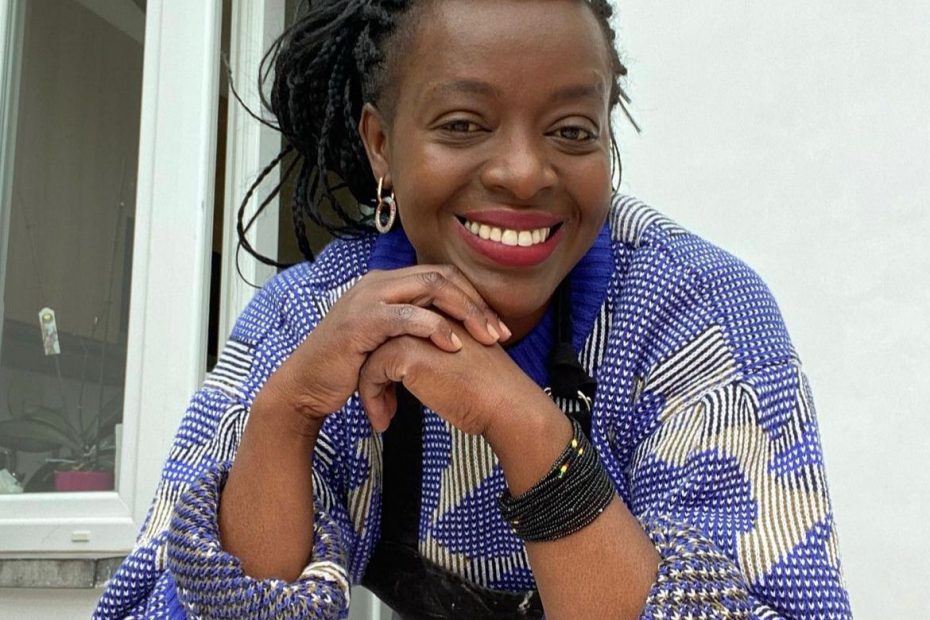From Genocide Survivor to Ceramics Entrepreneur and Tea Enthusiast
I had the pleasure of speaking with Fauzia Benda, a remarkable Rwandan migrant woman who came to Belgium after surviving the devastating Rwandan genocide.
Her native language is Kinyarwanda – and she also speaks Dutch, French and English. We met in her Pop-up store a few years ago (2018), in the city we live in.
Benda not only found solace in her mother’s Rwandan roots, where ceramics are a cherished tradition, but also combined her father’s Tanzanian heritage of tea drinking to create a successful ceramics business and online teashop.
She is delighted to share her story. So she says.
Attika:
Let’s start at the beginning. Can you tell us about your journey from Rwanda to Belgium?
Benda:
Certainly. I was born and raised in Rwanda, and unfortunately, I experienced the horrors of the 1994 genocide. It was an incredibly traumatic time for us. After losing so much, we found refuge in Belgium, where we hoped to find peace and rebuild our lives.
Attika:
It must have been an incredibly difficult transition. How did you find solace in Rwandan ceramics traditions?
Benda:
Ceramics have always been an integral part of my mother’s Rwandan heritage. It became a way of staying connected with my roots. There are Hutu’s Tutsi’s and Abatoi people living there. And one of the crafts Abatoi’s excerice is ceramics. I admired it so much that I decided that this is what I will do when I grow up…
Attika:
How did this love for ceramics evolve into your own business?
Benda:
Over time, I developed a deep passion for ceramics and recognized its potential to not only heal but also create something beautiful. I decided to follow in the footsteps of the Abatoi and started learning the art of ceramics, at the arts and craft school in Ghent (a city in Belgium). I also attended workshops and spent countless hours honing my skills. Eventually, I felt confident enough to establish my own ceramics business.
Attika:
That’s truly inspiring. How did your father’s Tanzanian heritage of tea drinking come into the picture?
Benda:
My father, who hails from Tanzania, instilled in me a love for tea. In Tanzanian culture, tea plays a significant role in daily life, and it became a way for my father to connect with his roots. I wanted to honor both sides of my heritage, so I decided to combine my passion for ceramics with my appreciation for tea.
Attika:
Fascinating! Tell us more about your ceramics business and online teashop.
Benda:
I founded my ceramics business, “Benda,” with the aim of creating unique, handmade ceramics that would bring joy and beauty into people’s lives. From mugs and teapots to plates and bowls, I design and craft each piece with great care. I also carefully curate a selection of exquisite teas from Rwanda, Tanzania, and other regions, which I offer through my online teashop. It’s a way for me to share the flavors and traditions of both countries with a broader audience.
Attika:
That sounds incredible. How has the response been so far?
Benda:
The response has been overwhelmingly positive. People appreciate the craftsmanship and the story behind each piece. They also love the opportunity to try new and authentic teas from Rwanda and Tanzania. It brings me immense joy to see others embrace the beauty of both cultures through my work. I also give ceramics workshops – and tea party’s
Attika:
Lastly, what message would you like to share with others who may be facing similar challenges or pursuing their entrepreneurial dreams?
Benda:
I would tell them to never underestimate the power of their heritage and the strength within them. Our past experiences and cultural roots can serve as powerful inspirations for our present and future endeavors.
You can check her website: www.benda.be
Instagram: benda_thee_salon
Instagram: ceramics:keramiek_by_benda
